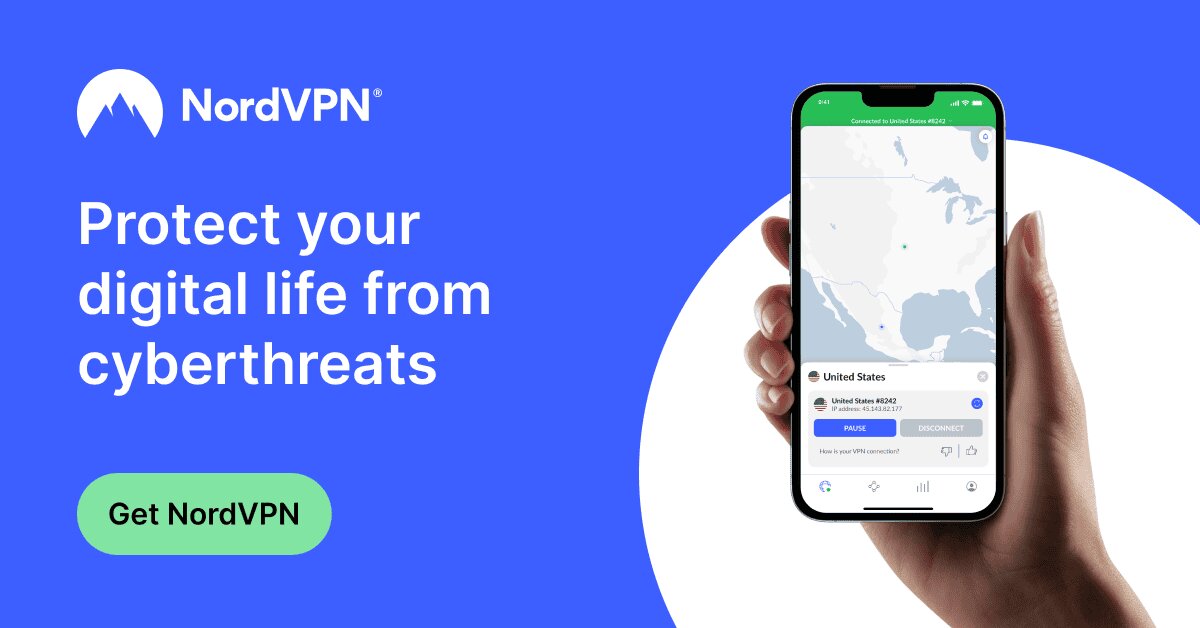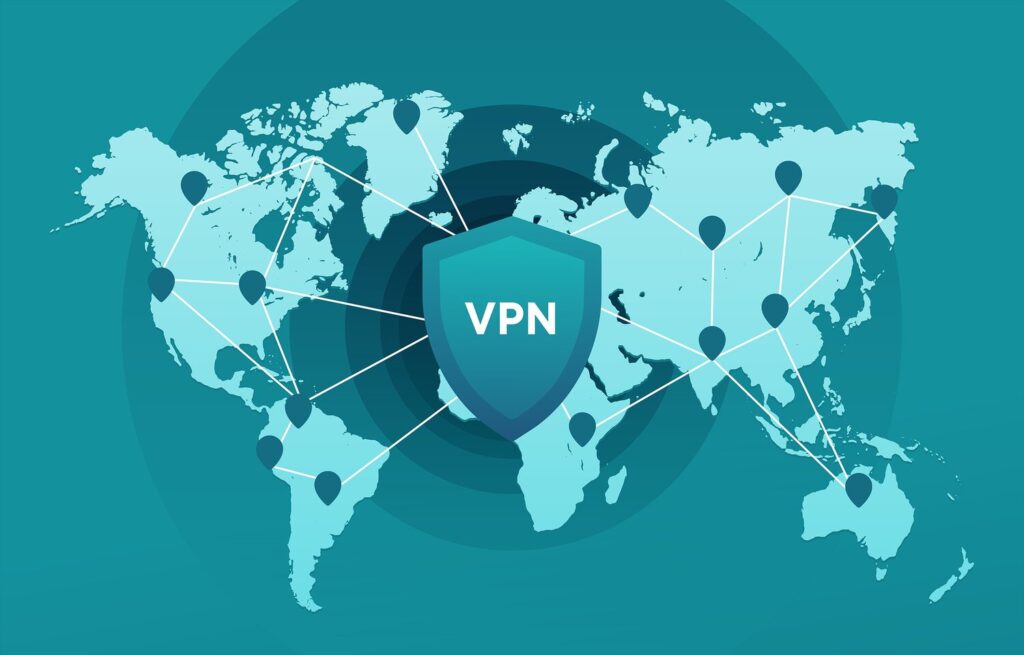
Hola VPN Review – In-Depth Breakdown (2025 Edition)
There are a lot of reasons people get a VPN. The most popular ones tend to be related to privacy and security, but it can also be something a lot more innocuous than that. For instance, you might just want to watch your favorite TV shows from back home!
As a digital nomad, it’s awesome getting to live and breathe in a completely different global setting from the one you grew up in, but that doesn’t mean we don’t sometimes miss the airwaves of our native land.
Hola VPN may not be the best option on the market when it comes to advanced encryption or secure tunneling protocols, but it does let you mask your IP address so that it appears to be coming from a different country.
That can come in handy for nomads when they want to clamber over government firewalls or niftily counteract geo-blocking.
In this post, we’re going to look at Hola’s unique way of operating and how it compares to the top dogs in the VPN market.
Company Background
Hola said hello to the world back in 2012. Their principal goal is to open up the internet, so you can access everything it has to offer without censorship.
The company might sound Spanish, but they are actually an Israeli company, headquartered in Netanya.
Over 13 years, the business claims to have amassed more than 263 million downloads through its apps for Windows, macOS, Android, iOS, Chrome, Edge, Opera and several Smart TVs.
They offer both a free service for people on a budget, as well as a faster, more private service for premium customers who sign up for a paid subscription.
Hola is a bit different from most VPNs in that instead of running a big network of their own servers, they route traffic through the computers of their free users. They also use these nodes to service their business clients through a sibling company called Bright Data (formerly Luminati).
This practice has caused a bit of controversy in the past – as has its logging policy. In the VPN sphere it doesn’t have the best reputation if privacy and security are your goal, but they have plenty of happy customers who enjoy using their service to stream content.
Core Features
There are several differences between Hola’s free and premium versions. In the sections below, we’ve tried to indicate as clearly as possible where there are differences between the two tiers.
Security & Privacy
The thing you need to understand about Hola is that it’s not primarily designed to protect your privacy. It’s designed to help you access sites. In fact, it will switch to less secure settings to help you connect whenever necessary, even in countries like Turkey and Russia – which is far from ideal if you’re worried about snooping.
If you’re connecting via desktop apps, they reassuringly use AES-256 encryption as standard, which puts them in line with most VPNs. This isn’t necessarily the case for all devices though, as they make clear in the terms of service.
Hola’s protocols are relatively limited. IKEv2 is the default, but the software will automatically fall back on the increasingly outdated PPTP/L2TP if it is unable to get a connection.
There’s no option to use WireGuard or OpenVPN – two of the most popular options with regular VPN users.
One of the biggest red flags for Hola users is that they don’t operate a no-logging policy. In fact, they actively collect and store your data for a minimum of 12 months.
There’s also none of the additional security tools you see from competitors like Surfshark and ExpressVPN, such as a kill switch, obfuscated servers or malware protection.
Performance & Server Network
As we’ve mentioned, Hola works slightly differently to most VPNs. Rather than primarily relying on high-speed, 10 Gbps servers to deliver bandwidth, they’re depending on their peer-to-peer network.
In essence, how it works is that you choose the country where you want to browse from, and this then tells the Hola program to pass your connection through an IP address that is in that country.
They estimate that they have 850 servers in their network, with 550,000 peers in more than 190 countries. The quality of the connection varies greatly by nation, but generally speaking, nations with large populations have greater numbers of peers, which means greater stability and speed.
We managed to reach download speeds of about 80 Mbps and upload speeds of about 40 Mbps with lag of about 38 m/s when we tested Hola. That’s slower than products like Surfshark and ExpressVPN, but still just about good enough for browsing and streaming.
These rates were recorded from Europe while browsing via Germany. As you would expect, the speeds and latency were higher connecting to servers in the US and Asia.
Free users are restricted to about 30 minutes of VPN usage per hour. That means you can browse for half an hour, before you are cut off and must wait 30 minutes for your usage limit to refresh.
Premium users are completely unshackled, with unlimited bandwidth and usage time on up to 10 devices.
Special Features
Hola is a really pared-down service. It doesn’t have anything like multi-hop or ad blockers, just the VPN itself.
The most notable feature it does have is geo spoofing, i.e., helping you appear like you’re accessing a site or streaming service from a different country.
Speed, Streaming & Torrenting Performance
Hola isn’t going to break any speed records, but we did find it had a solid performance – especially if all you care about is enough bandwidth to watch that Korean soap opera or German reality show that you just must see.
Speed Test Results
We did have quite a bit of variability with our speed tests, but that was to be expected, given the connection was probably being routed through a different series of peers and servers every time.
Unlike other VPN providers, Hola doesn’t let you choose a server; you just choose what country you want to appear like you’re browsing from.
Downloading: 16.27%
Uploading: 49.02%
Latency: 2,483.33%
The percentage decrease in download and upload speeds is significant, but ultimately it didn’t affect our ability to browse or video chat.
Streaming & P2P Support
Hola touts themselves as primarily being about unlocking the internet, so the streaming test was a crucial one for us. If they are failing in the security stakes, they at least have to be able to provide a smooth viewing experience, am I right?
Fortunately, they live up to their boasts (mostly). We were able to unblock the Netflix, Amazon Prime and Disney+ libraries for several different countries without any issues.
We did have some problems with buffering for some regions, but this was usually solved by disconnecting and reconnecting again.
As for torrenting, forget about it! Hola actively blocks this kind of traffic.
Security and Data Protection
It’s safe to say that data protection is not Hola’s strong suit. Compared to other VPN products, they don’t offer the same level of security on several different fronts.
Encryption & VPN Protocols
First up, the encryption. Although Hola does have the quantum-resistant AES-256 for Windows and macOS apps, for other devices it utilizes weaker forms of encryption that top-notch VPN providers have long abandoned. We’re talking older versions of AES using 128-bit and 192-bit keys, as well as 3DES, all of which are considered less secure than AES-256.
As for their tunneling protocols, the best Hola can offer is IKEv2 – which isn’t bad exactly, but it’s certainly not popular or top of the line when it comes to speed, security or custom configuration. It does excel at providing a stable connection though, which is after all the USP that Hola is going for.
More concerning is that Hola falls back on PPTP and L2TP protocols where IKEv2 fails. These have been dumped by the likes of Proton and Mullvad because they don’t offer the same level of security as other options on the market.
No-Logs Policy & Audit History
Hola’s logging policy is a huge concern for privacy-minded individuals. Unlike ExpressVPN or NordVPN, they actively collect IP addresses, time stamps and browsing history. They even gather information about the apps you use while connected to their VPN.
At a minimum, this data will be kept for 12 months, but the company reserves the right to keep it for longer.
Their terms and conditions are extremely hazy, claiming they do not “sell” what they term “personal information,” but they may “share” it. Either way, “personal information” in their terminology means your name, email, IP address and billing information. That suggests that your browsing habits are fair game for monetization.
Unsurprisingly, they do not bother to have third-party audits of their logging policy, since it’s next to non-existent.
Jurisdiction & Privacy Implications
At last part of the reason for Hola’s logging policy is that Israel requires companies to store user data for an extended period.
While the country is in the process of updating its laws around data privacy to strengthen individual protections, the proposed changes will still not provide the same level of privacy as EU law does.
Then there’s the thorny issue of the broad scope of information that Israeli intelligence services are legally able to access – and, indeed, share with other countries like the US.
In short, Hola is not based in a particularly privacy-friendly country.
Pricing and Subscription Plans
Hola has a free plan and a premium plan, with different levels of speed and service available for each.
Unlike a lot of competitors, Hola doesn’t have a big renewal price bump for its paid tier. Repeat subscriptions cost the same as initial signups.
Plan Breakdown
Hola Free allows for limited a connection time of 30 minutes per hour. Free users are required to engage in the “IP exchange” network, which basically means that while you aren’t paying for the free plan with money, you are paying in bandwidth.
Every day, other Hola subscribers and Bright Idea business customers will be able to use your device as an exit node. If you’re browsing on a desktop, the cost is up to 100MB per day. If you’re browsing on a mobile, it’s up to 3MB per day.
Theoretically, there are all kinds of exceptions that are designed to avoid this arrangement throttling your bandwidth. Browser extensions on Chrome, Opera and Edge are also excluded, according to the Ts and Cs – although we couldn’t confirm this independently.
Hola Premium does away with usage limitations and excludes your connection from the peer-to-peer network, so that other users are not being routed through your internet. It also provides access to faster servers.
Fees for the paid tier are listed as per month, but the total for the subscription period is charged upfront as a lump sum.
Single-month subscription: $14.99.
12-month subscription: $7.69 per month ($92.26 total).
3-year subscription: $2.99 per month ($107.55 total)
Payment Options & Refunds
Hola accepts credit card, PayPal and Google Pay, as well as Alipay for Chinese users. They don’t currently have an option for crypto.
Their refund policy is super stingy. If you don’t use their product AT ALL you can request a refund within 14 days, but if you have used it and aren’t happy, you’ll probably just have to eat the cost.
Of course, the flip side of that is that you can trial Hola using their free tier before taking the plunge and upgrading. Plus, some people have mentioned that Hola are more flexible than is stated in their Ts & Cs. We wouldn’t want to test it though…
You can initiate the cancellation process through your account page, which is nice and straightforward. They aim to process all requests within 5-7 business days.
Customer Support Experience
The only way to contact Hola is via their support form, regardless of whether you are a free or premium user. That is pretty basic compared to most VPN products.
On the plus side, the form is very simple to use. After entering your email address, you can choose from three options: issue with the service, issue with payment or general feedback. You then fill in a few more details and boom, done.
There’s also a support center that contains a bunch of useful articles on installation, troubleshooting and billing, as well as FAQs regarding the terms of service.
Pros and Cons
Pros:
✅ Offers a free version
✅ Good for circumventing geo-blocking
✅ Easy to use
Cons:
❌ Privacy issues around its peer-to-peer network
❌ Limited advanced features
Comparison With Other VPNs
| Download/Upload Speed Loss | Number of Servers | Netflix Access | Price Per Month (Annual Subscription) | |
| Hola *Premium | 16.27% / 49.02% | 850 | Yes | $7.69 |
| Surfshark *Surfshark One | 7.72% / 32.24% | 3,200 | Yes | $3.39 |
| NordVPN *Plus | 5.34% / 3.39% | 7,525 | Yes | $5.99 |
| ExpressVPN | 15.61% / 40.79% | Not available | Yes | $6.67 |
*We’ve selected the midrange option for each service listed above, rather than the basic or premium plan. Speeds and prices will vary according to geography.
The paid version of Hola is surprisingly expensive, given its lack of features and limited protocols – not to mention the data privacy concerns. It’s costlier than better, more sophisticated options like Surfshark and NordVPN, at least on an annual basis.
While Hola is cheaper than most if you lock in for 3 years, that’s a pretty massive commitment!
As for speeds, it performs well, but not superbly. As you can see from the comparison table, the speeds are only a bit slower than ExpressVPN.
We can’t say that we’re in love with any product that doesn’t offer a better customer service feature than just a form. That definitely could use improvement.
User Reviews and Ratings
Hola has a decent rating of 4.3/5 on Trustpilot, with a lot of people happy with the basic service that’s provided. People on the Apple App Store are also generally satisfied, with a rating of 4.1/5 and lots of thumbs up related to watching movies through the VPN.
On the Googe Play Store, however, Hola gets hammered. With just 3.3/5, the Android app has functionality issues for some users.
What people like:
That there’s a free tier. Despite some complaints about the usage limits, most people appreciate that it doesn’t cost a penny.
That it’s good for streaming. Hola VPN successfully helps people watch geo-blocked content.
That it’s easy to use. Even people who struggle with tech find it simple to switch on.
What people don’t like:
The data logging. Unsurprisingly, a lot of reviewers are not happy to discover the level of tracking.
The Android app. Some users have had problems opening and connecting on an Android smartphone.
Final Verdict & Recommendation
Here’s the thing: we don’t know why you’d pay for Hola Premium. After all, if you compare its prices to other products like Surfshark and Proton, it’s essentially more money for less functionality, speed and security.
We know we keep coming back to the security problem a lot in this review, but privacy and anonymity are some of the major reasons people use a VPN. If you’re getting a VPN because you don’t want to be spied on, whether by governments, scammers or companies that seek to monetize your data, Hola is definitely not for you.
That said, we can envisage a scenario where, as a digital nomad, the main reason you want a VPN is to stream stuff from back home. If that’s the case, then the free version might be just the app you’re looking for – but then you run into time limits on usage.
Ultimately, Hola is only the best option in very specific circumstances – say, if you’re someone on a budget who wants to view a webpage or a TV show that’s blocked where you are and don’t mind sacrificing data privacy in exchange for a free service.
When it comes to paid services, however, there’s no doubt that you can do better.








Responses